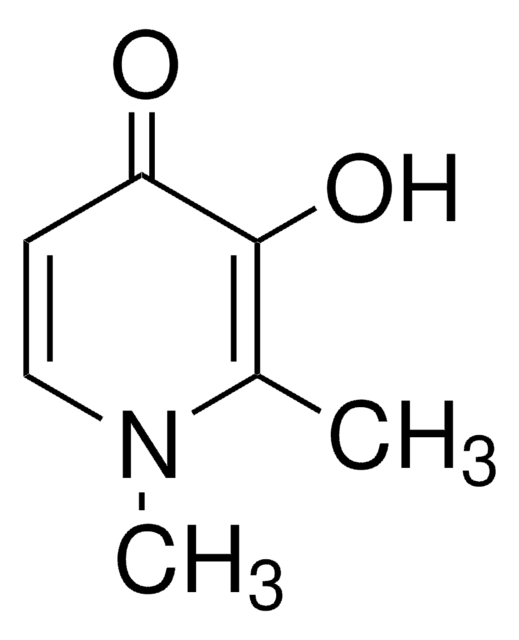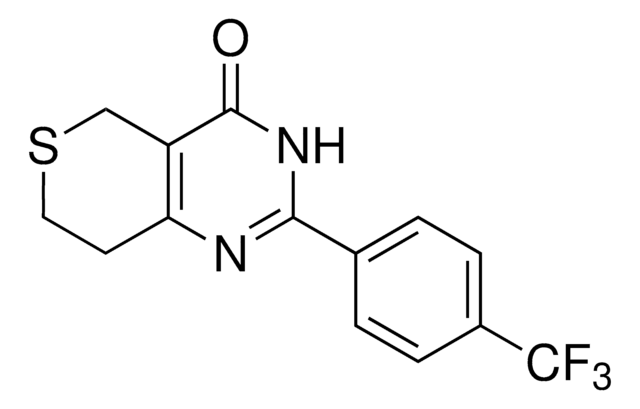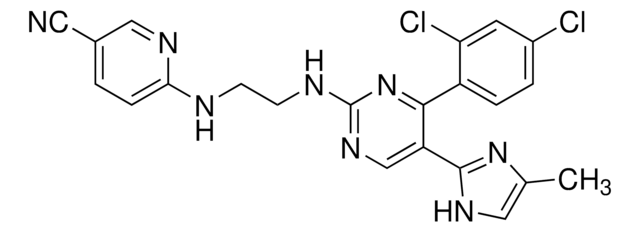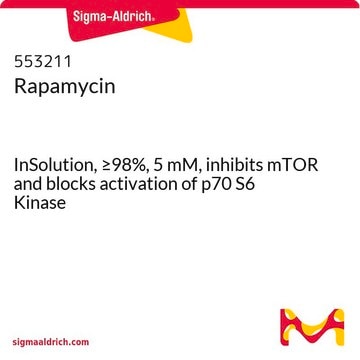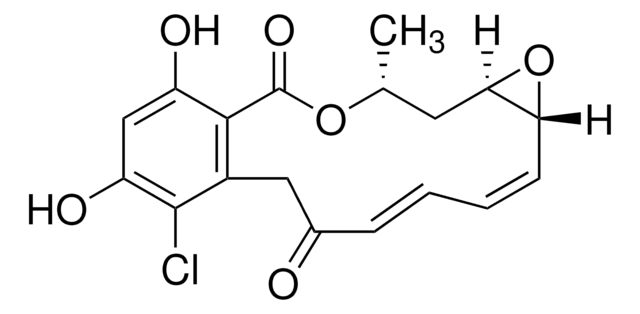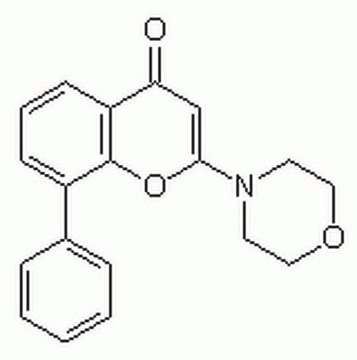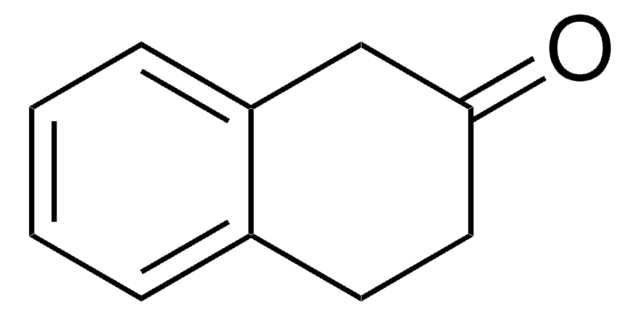528100
PI-103
A cell-permeable pyridinylfuranopyrimidine compound that acts as a potent and ATP-competitive inhibitor of DNA-PK, PI3-K, and mTOR.
Synonym(s):
PI-103, 3-(4-(4-Morpholinyl)pyrido[3ʹ,2ʹ:4,5]furo[3,2-d]pyrimidin-2-yl)phenol, mTOR Inhibitor V, PI 3-K Inhibitor V
About This Item
Recommended Products
Quality Level
assay
≥97% (HPLC)
form
solid
manufacturer/tradename
Calbiochem®
storage condition
OK to freeze
protect from light
color
white
solubility
DMSO: 5 mg/mL
shipped in
ambient
storage temp.
−20°C
InChI
1S/C19H16N4O3/c24-13-4-1-3-12(11-13)17-21-15-14-5-2-6-20-19(14)26-16(15)18(22-17)23-7-9-25-10-8-23/h1-6,11,24H,7-10H2
InChI key
TUVCWJQQGGETHL-UHFFFAOYSA-N
General description
Biochem/physiol Actions
DNA-PK, PI3-K, and mTOR
Packaging
Warning
Preparation Note
Legal Information
wgk_germany
WGK 3
flash_point_f
Not applicable
flash_point_c
Not applicable
Certificates of Analysis (COA)
Search for Certificates of Analysis (COA) by entering the products Lot/Batch Number. Lot and Batch Numbers can be found on a product’s label following the words ‘Lot’ or ‘Batch’.
Already Own This Product?
Find documentation for the products that you have recently purchased in the Document Library.
Articles
AldeRed™ 588-A is a red fluorescent live cell probe that detects ALDH activity used to identify cancer stem cells and progenitor cells in culture. Cancer stem cells (CSCs) are subpopulations of cancer cells that can self-renew, generate diverse cells in the tumor mass, and sustain tumorigenesis. Some researchers believe that cancer arises from cancer stem cells that originate as a result of mutational hits on normal stem cells.
Our team of scientists has experience in all areas of research including Life Science, Material Science, Chemical Synthesis, Chromatography, Analytical and many others.
Contact Technical Service